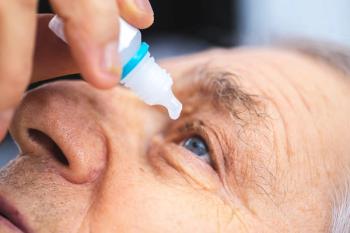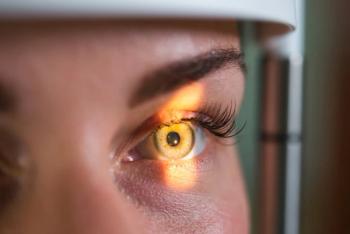
Dave Sattler, FAAO, Director of professional relations-academic development, Alcon
It was my second “real” job. It was an opportunity when Alcon was building its optometric sales organization, it’s first endeavor as Vision Care. I was one of the first hires back in 1986. I was previously working in consumer products, totally unrelated area with Oscar Meyer.
How did you get started in pharma sales?
It was my second “real” job. It was an opportunity when Alcon was building its optometric sales organization, it’s first endeavor as Vision Care. I was one of the first hires back in 1986. I was previously working in consumer products, totally unrelated area with Oscar Meyer.
Did you plan to spend your career at Alcon?
Looking back I’m probably a rarity today for someone to stay at an organization for 28 and half years. A couple things kept me there. One, the innovation that I saw initially with the pipeline among the three divisions, pharmaceutical, surgical, and vision care. I also saw an industry that was alive and well-eye care. I wasn’t a science major or someone who was interested in the medical field. I was business marketing major. But this was intriguing. I was given the opportunity on the sales side to learn and was provided with great training that has kept up over the years. And the various opportunities that were presented to me that allowed me to stay within the organization doing different things. I was continually challenged, given opportunities to try new things, and bring value to the organization. It’s been a fun ride.
Did you really drive the Oscar Meyer Weinermobile?
I never drove the Weinermobile, but when I was with Oscar Meyer, I worked closely with Little Oscar, a person of small stature who was the mascot, and we did live events. During the time I was there, the Weinermobile program was put in mothballs for a few years and it wasn’t until after leaving the company that I saw the Weinermobile back in action. A couple years back I was visiting Portland OR staying near a Fairfield Inn and I was taking jog in the morning, and there it was. I had my buddy take a couple pictures of me next to the Weinermobile. Boy, these are some pretty cool vehicles, they have all the latest bell and whistles on them! [Laughs] Every time I bring up the fact that I had worked for them years ago, someone will always ask that question. Some day I might. [Laughs]
What memorable moments come to mind during your long career in optometry?
How we’ve been able at Alcon to give back. We’ve helped with so many mission trips, whether it’s with VOSH trips or helping a group of local doctors go abroad. I still stay involved with those activities. Recently, I was a matchmaker here in Fort Worth. The Rosenberg School of Optometry and the University of Houston College of Optometry were trying to put together an externship site in Fort Worth to allow fourth-year students to get experience in a clinic that serves the underserved. I was able to hook up the mayor of Fort Worth, the two schools, Alcon, and other industry partners, and we found a place where we could potentially build this clinic. It was a lot of folks coming together for the common good, and that Fort Worth Community clinic is alive and well.
Why did you become a Fellow of the American Academy of Optometry?
Many of my peers are optometrists, and most of them are Fellows of the Academy. I found out that there was a way for a non-degreed person to become a Fellow. I was able to get a sponsor, Dr. Frank Fontana (“Uncle Frank). I went after it and took on the challenge of writing a pretty deep paper. The example that I used was called Bridge Builders, a clinic built in Dallas with a lot of collaboration: the Baptist church, Dallas Housing Authority, University of Houston, and then industry. Alcon was one of the companies that provided the goods and services. I said that model could be duplicated as a teaching model-why couldn’t we as an industry collaborate in other major cities to provide similar types of clinics to take care of the underserved in the inner cities?
How has the industry changed since your first year?
The biggest change has been in the last year when healthcare compliance has become such a bigger issue. I think the spirit of it is good, but the conservative approach that companies take it can be a little overwhelming, and it slows down some of the processes. All this in the spirit of healthcare compliance has dynamically changed virtually every aspect of our business.
Next: Read the rest of interview
Could more projects like the Fort Worth Community Eye Clinic create more opportunities?
Absolutely. The clinic hired full-time optometrists to be their faculty, so there’s an opportunity. That’s the neat thing about optometry. When an individual graduates, there are so many ways to go. In addition to just providing eye care to the public, there’s academic positions, business opportunities, and industry opportunities. Here at Alcon, virtually everyone is an optometrist in my department. Tremendous opportunities.
What's the biggest challenge facing new optometry professionals?
That whole business side of eye care can be somewhat overwhelming, but there’s lots of resources available …The message I would give anyone is don’t try to do it alone. Get involved in a study group where your colleagues can assist. Get involved in various organizations and associations that keep you up to speed on how to shore up the business side of eye care. That can be somewhat overwhelming and scary for the new graduate because they’re undoubtedly the best trained from a clinical standpoint than any optometrist has ever been over the years. But the curriculum is so jam-packed that it’s hard for the schools to provide all that business knowledge that one needs to know when they graduate.
What are you looking forward to in your retirement?
I have a little list on my iPhone of things that I want and need to do. The first list is the honey-do list for the last 28 years my wife has made for me. I’ve been away from home a lot during the last 20 years. There are a lot of projects that I have to do. And then, people laugh at this, as much traveling that I’ve done for work, we enjoy travel for fun, too. So, I have a number of trips planned. The first one is a camping trip to Zion National Park. Ironically, we’re with a bunch of optometrists.
What is the craziest thing you've ever done?
I was a ski instructor in Breckenridge, CO, halfway through college. I got to be a pretty avid skier, and I go two or three times every year. The craziest thing I ever did was I went snow cat skiing. It’s very similar to helicopter skiing, but the snow cats will go whether its snowing or its sunny. You can be assured that you will ski. We went into some areas that were just phenomenal. Untracked powder…beautiful scenery…but quite thrilling. The first thing they do is strap on a back pack with a shovel and an emergency device in case you hit an avalanche or stuck in a creek and that starts getting your blood flowing, your heart pumping before you head up the mountain.
What would you change if you had to do all over again?
For work and family, I don’t think I would change anything. I look through the front windshield vs. the rearview mirror. At work I feel satisfied, accomplished, and privileged for being able to work for a great company for all these years. But one of the things that I didn’t do that I would enjoy -other than driving the Weinermobile [laughs]- is to coach a sport, a Little League or basketball team. I had a flavor of that when my three daughters played sports and I did a little assisted coaching one season but my travel season was pretty tough to be able to commit all the weekends and practices. I could do that someday, maybe coach a kids’ team.ODT
Newsletter
Want more insights like this? Subscribe to Optometry Times and get clinical pearls and practice tips delivered straight to your inbox.








































